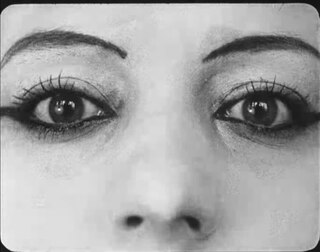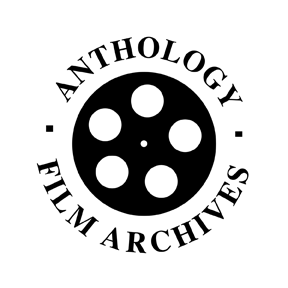Related Research Articles

Edward Franklin Albee III was an American playwright known for works such as The Zoo Story (1958), The Sandbox (1959), Who's Afraid of Virginia Woolf? (1962), A Delicate Balance (1966), and Three Tall Women (1994). Some critics have argued that some of his work constitutes an American variant of what Martin Esslin identified as and named the Theater of the Absurd. Three of his plays won the Pulitzer Prize for Drama and two of his other works won the Tony Award for Best Play.

Who's Afraid of Virginia Woolf? is a play by Edward Albee first staged in October 1962. It examines the complexities of the marriage of middle-aged couple Martha and George. Late one evening, after a university faculty party, they receive unwitting younger couple Nick and Honey as guests, and draw them into their bitter and frustrated relationship.

Paul Morrissey is an American film director, known for his early association with Andy Warhol. His most famous films include Flesh, Trash (1970), Heat, Flesh for Frankenstein (1973) and Blood for Dracula (1974), all starring Joe Dallesandro, 1971's Women in Revolt and the 1980's New York trilogy Forty Deuce (1982), Mixed Blood and Spike of Bensonhurst (1988).

Pink Narcissus is a 1971 American arthouse drama film directed by James Bidgood and starring (unknowns) Bobby Kendall, Don Brooks and stage actor Charles Ludlam. It visualizes the erotic fantasies of a gay male prostitute.

James Stanley Brakhage was an American experimental filmmaker. He is considered to be one of the most important figures in 20th-century experimental film.

Jackie Curtis was a pansexual American underground actor, singer and playwright best known as a Andy Warhol superstar. Primarily a stage actor in New York City, Curtis performed as both a man and in drag. Curtis' plays included Glamour, Glory and Gold, Amerika Cleopatra, and Vain Victory. Curtis made his film debut as Jackie in Andy Warhol's 1968 Flesh, directed by Paul Morrissey starring Joe Dallesandro. Curtis starred as Jackie in Warhol's 1971 Women in Revolt film which satirizes the Women's Liberation Movement and alludes to Valerie Solanas and her SCUM Manifesto. While performing in drag on stage and screen, Curtis would typically wear lipstick, glitter, bright red hair, ripped dresses and stockings. Curtis pioneered this combination of camp trashy glamour as a style that inspired many entertainers, including Jayne County, the New York Dolls, and all following glitter rock musical performers of the late-1970s, such as David Bowie, Iggy Pop, Gary Glitter and Mott the Hoople.
An underground film is a film that is out of the mainstream either in its style, genre or financing.

Experimental film or avant-garde cinema is a mode of filmmaking that rigorously re-evaluates cinematic conventions and explores non-narrative forms or alternatives to traditional narratives or methods of working. Many experimental films, particularly early ones, relate to arts in other disciplines: painting, dance, literature and poetry, or arise from research and development of new technical resources.

Wagner College is a private liberal arts college in Staten Island, New York City. It was founded in 1883 and has an enrollment of 1,947 students as of 2023. Wagner has an academic program known as The Wagner Plan for the Practical Liberal Arts. It is accredited by the Middle States Commission on Higher Education.

Gerard Joseph Malanga is an American poet, photographer, filmmaker, actor, curator and archivist.

BolexInternational S. A. is a Swiss manufacturer of motion picture cameras based in Yverdon located in Canton of Vaud, the most notable products of which are in the 16 mm and Super 16 mm formats. Originally Bol, the company was founded in 1925 by Charles Haccius and Jacques Bogopolsky, the company's name having been derived from Bogopolsky's name. In 1923 he presented the Cinégraphe Bol at the Geneva fair, a reversible apparatus for taking, printing, and projecting pictures on 35 mm film. He later designed a camera for Alpa of Ballaigues in the late 1930s.

David Abram Antin was an American poet, art critic, performance artist, and university professor.

Harrison Parker Tyler, was an American author, poet, and film critic. Tyler had a relationship with underground filmmaker Charles Boultenhouse (1926–1994) from 1945 until his death. Their papers are held by the New York Public Library.

Anthology Film Archives is an international center for the preservation, study, and exhibition of film and video, with a particular focus on independent, experimental, and avant-garde cinema. The film archive and theater is located at 32 Second Avenue on the southeast corner of East 2nd Street, in a New York City historic district in the East Village neighborhood of Manhattan.

Chelsea Girls is a 1966 American experimental underground film directed by Andy Warhol and Paul Morrissey. The film was Warhol's first major commercial success after a long line of avant-garde art films. It was shot at the Hotel Chelsea and other locations in New York City, and follows the lives of several of the young women living there, and stars many of Warhol's superstars. The film is presented in a split screen, accompanied by alternating soundtracks attached to each scene and an alternation between black-and-white and color photography. The original cut runs at just over three hours long.
Andrew Jackson Milligan Jr. was an American playwright, screenwriter, actor, and filmmaker, whose work includes 27 movies made between 1965 and 1988. He directed productions in Staten Island. In spite of the fact that he directed a number of movies that have become cult favorites with horror movie buffs, he died in abject poverty in 1991 from AIDS and was buried in an unmarked pauper's grave in Los Angeles, California.

Marie Menken was an American experimental filmmaker, painter, and socialite. She was noted for her unique filming style that incorporated collage. She was one of the first New York filmmakers to use a hand-held camera and trained Andy Warhol on its use. Her film Glimpse of the Garden was selected for preservation in the National Film Registry by the Library of Congress.

The Film-Makers' Cooperative is an artist-run, non-profit organization founded in 1961 in New York City by Jonas Mekas, Andy Warhol, Shirley Clarke, Stan Brakhage, Jack Smith, Lionel Rogosin, Gregory Markopoulos, Lloyd Michael Williams, and other filmmakers, for the distribution, education, and exhibition of avant-garde films and alternative media.
Edward Owens (1949–2010) was a queer African-American filmmaker, active within the New American Cinema of the 1960s. A native Chicagoan, he is best known for his experimental films Remembrance: A Portrait Study (1967) and Private Imaginings and Narrative Facts (1968–70).
References
- ↑ "When Staten Island was avant-garde: Wagner College revisits ties to Albee's Virginia Woolf" by Michael J. Fressola, Staten Island Advance , January 3, 2019
- 1 2 Electronic Arts Intermix
- ↑ "Notes on Marie Menken (2006)" by Martina Kudláček
- ↑ Scott McDonald, A Critical Cinema: Interviews with Independent Filmmakers (University of California Press, 1988)
- ↑ "Willard Maas papers, 1931–1967", John Hay Library, Brown University